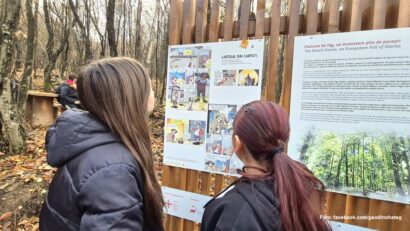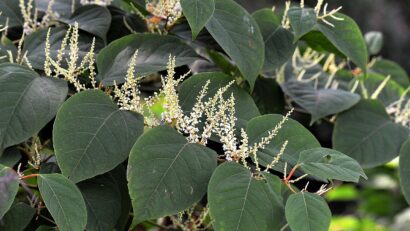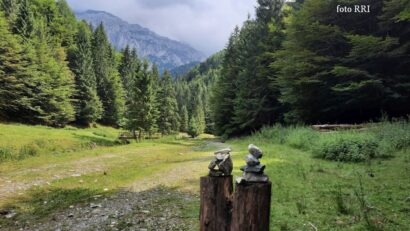Invasive plant species in Romania
In recent years, invasion of eco-systems by alien species has become a major problem
Eugen Coroianu, 31.12.2021, 13:53
In recent years, invasion of eco-systems by alien
species has become a major problem in many parts of the world. Apart from the
expanding human activities, climate change also affects the intrusion of such
species and their spread in new territories, leading to the disruption of
habitats.
The
situation is so critical that the European Parliament and EU Council found it
necessary to put together a Regulation to prevent and manage the introduction and
overpopulation of such species. According to the document, the presence of alien
species, whether animals, plants, or microorganisms, in a natural environment
where they are not normally found, is not always a reason for concern. However,
a significant part of these alien species may become invasive, with serious
negative consequences on biodiversity and habitats, as well as other social and
economic effects that must be prevented.
Around
12,000 species in Europe are alien, and 10% to 15% of them are estimated to be
invasive. The threat they pose takes various forms, including a negative impact
on local species and on the structure and functioning of ecosystems by altering
habitats and competition among species, by transmitting diseases, by replacing
local species and hybridisation. Moreover, invasive alien species may also have
a significant impact on human health and economy.
The
same situation is to be found in Romania as well, where the environment
watchdog Conservation Carpathia found 6 invasive alien plant species in the
south-east of the Făgăraș Mountains, alongside water courses. The organisation
is taking steps to eliminate these species, as biologist Oliviu Pop told us:
Oliviu
Pop: These invasive plants, which are
in fact invasive alien species, appear in natural habitats that are degraded or
abandoned, such as abandoned fields or meadows or areas where waste has been
dumped. In time, they spread and eliminate the native species in those areas,
in other words they reduce biodiversity. These invasive plants gradually
eliminate valuable species, rare protected species or fodder plants. Recent climate
changes, more and more substantial, also help such alien species take control. As
their name suggests, these are species introduced, either accidentally or
deliberately, in the respective areas.
Conservation
Carpathia focuses on protecting nature, on reconstructing the areas affected in
the past by excessive forest harvesting, for example, and on restoring balance
in nature. To this end, a scientific study, coordinated by Oliviu Pop, has been
conducted along the main water courses and their tributaries in the southern
part of the Făgăraș Mountains. Based on the findings of this scientific
research, Conservation Carpathia put together an action plan, under which this
summer it organised actions to eliminate invasive alien plant species, together
with Romanian and foreign employees and volunteers.
Only
environment-friendly methods have been used, such as close cutting or uprooting.
These activities will carry on for several years, until the spread of such
species along the water courses included in the project has been reduced by at
least 50%. Here is Oliviu Pop once again:
Oliviu
Pop: We are currently implementing a project
to rebuild natural habitats, which includes both the habitats in riparian
areas, which are the most severely affected by human activities, and the
reconstruction of forests and shrubbery in the alpine area. Apart from planting
or replanting species that are native in these riparian areas, we are trying in
certain places to eliminate the invasive species. We started out by making an
inventory of the species along 165 km of river valleys, and then, together with
our employees and volunteers, we gradually managed to eliminate some of the invasive
species in those riparian habitats, on approx. 37 km. And now we are trying to
monitor and see what happens, how such new species appear, while at the same working
to restore these habitats, to replant the willows and alder, which are specific
to these areas.
Oliviu
Pop also warns that some invasive alien species have flowers and may seem
beautiful, as a decorative species, but in ecologic terms they are still
harmful. This topic, hardly ever discussed in the past, will be of growing
importance in the years to come, and actions such as the ones run by Conservation
Carpathia will be increasingly frequent at national and European level, the
environmental organisation predicts. (tr. A.M. Popescu)






























